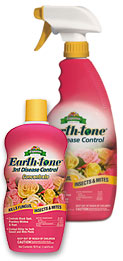

There are some studies showing it could negatively affect some beneficial insects, too, (though it’s not shown to always kill them). It may not just interrupt their growth and maturity, but also stop them from reproducing and outright repel them, according to Penn State University. Neem’s active compound, azadiractin, has been a popular ingredient in some natural pesticides bug sprays as a “growth regulator” - meaning it interrupts insect growing phases and eventually leads to the death of even the most-hated lawn pests. It slowly kills insects and gradually prevents them from reestablishing.īecause the USDA certified the oil as organic, it can be approved for use under organic certification, including for lawns. Neem OilĮxtracted from a tree native to India (Azadirachta indica), neem oil could be dubbed the ultimate organic pest preventive. If you do have that dream of a stunning lawn that you could certify organic, know that it’s possible with two provably effective organic pesticides that even the USDA would accept under organic certification standards: neem oil and diatomaceous earth. They’re used by organic lawn care specialists and organic farmers who must get their fields certified as organic. Luckily for homeowner and newbie organic gardeners, there are recommended organic, natural insecticides professionals rely on. For every gardener who says liquid soap slew the spider mites on the begonias, you’ll find another who confesses the neighborhood lizards found croton leaves even more delicious after a garlic spray.

But there’s one problem: Little evidence says they work well in pest management.Ĭlaims of effectiveness tend to be anecdotal. They sound like eco-friendly ways to deal with garden pests and avoid chemical pesticides. That has led to a host of popular concoctions of dish soap, vegetable oil, cayenne pepper and essential oils, passed around enthusiastically on the internet. No doubt: Many plants have insecticidal qualities. When looking up the best natural, nonharmful pesticides (also called biopesticides), you will find a wealth of homemade pesticide remedies. If mainstream insecticides are out, what’s in? Organic lawn care poses zero risks of pollution for soil, air, water, pets, and family! Folklore Pesticide Recipes: Organic, but Unproven Contrary to synthetic products, these do lighter and easy-to-absorb nutrition over a longer period of time.Īlthough more difficult to achieve and maintain, healthy soil does grow healthy grass. You can use seaweed, bone, and feather meal instead. Natural fertilizers derived from living matter such as greenery, living matter, be it animal or bus, also minerals or food leftovers, ensure healthy and nutrient-rich soil. When you go beyond pesticides to organic lawn care 101, you focus on healthy and sustainable methods, comments Organic 4 Green Living. If they drip through the soil and reach freshwater, pollution is a fact. Sadly, these can only pollute and add zero nutrition to the soil. Some of the widely used compounds are Phosphorus (P), Potassium (K), and Nitrogen (N). Īll these work great for your curb appeal but, unfortunately, mistreat and poison the soil, natural plant life, and nature in general. Non-organic care is a subject of various fertilizers, chemical products, and sometimes paint. That means synthetic chemical pesticides are out, due to their negative effects on wildlife and water quality. A beautiful, organic-certified, and is pest-free lawn is it possible!Īnyone calling their lawn “organic” will need organic means to repel lawn pests. Green living and sustainable plant-care grow more popular by the day.


 0 kommentar(er)
0 kommentar(er)
